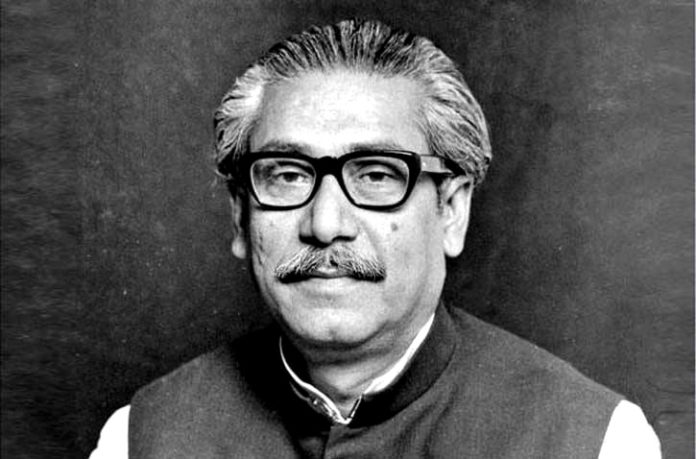DHAKA, Feb 20, 2018 (BSS) – As the struggle for independence was gaining momentum, Father of the Nation Bangabandhu Sheikh Mujibur Rahman drew a specific plan for introducing Bangla at all levels from the very beginning of his government.
On many occasions, like delivering speeches, giving interviews and talking on political, social and cultural issues, he clearly described his plan for wider use of Bangla language. One of such occasions was the inaugural function of a week-long programme to observe the Shaheed Day (Language Martyrs’ Day) in 1971 at the Bangla Academy.
Only a few weeks before the beginning of the country’s War of Independence, Bangla Academy organised the programme on its premises on Monday, 15 February in 1971 to pay respect to the language martyrs. The day was not a public holiday, but the Academy premises was full with gathering of eminent writers, poets, academics, politicians and members of the civil society and public.
Bangabandhu was the chief guest at the programme, which was presided over by eminent writer Syed Murtaza Ali, the then president of the Academy. Kabir Chowdhury, renowned writer and a director of the Academy, gave welcome speech.
Like other speeches, the speech of Bangabandhu at the Academy, was widely covered by the country’s all major Bangla and English dailies. Most of the speeches were collected and edited by cultural personality Ramendu Majumder and they were published in a book titled ‘Bangladesh My Bangladesh” by Muktadhara in 1972.
Showing utmost respect to the language martyrs, Bangabandhu in the inaugural speech declared that his government would introduce Bangla at all levels from the very beginning once his party forms the government. He also gave precise suggestions on how to address the issue of developing glossary, a major barrier to using Bangla in different areas.
“I would like to declare that Bengali will be introduced at all levels on the day my party will be inducted into power,” said the great leader of all time.
Eventually, the constitution of independent Bangladesh adopted by the government led by Bangabandhu in 1972, clearly mentioned that Bangla is the state language of the country. Later, using Bangla in all activities except communicating with other countries has been made mandatory. However, there is still limited use of Bangla in some areas, including the apex court showing reasons that not many related books and glossary are available.
Bangabandhu, in his speech, emphasized that we should not be waiting for evolution of glossary to introduce Bangla. Instead, we should start using Bangla in whatever shape it exists ‘today’.
“We should not wait for the evolution of a glossary. If we do, then we can’t introduce Bangla at all levels,” Bangabandhu said though he pointed out that initially, there would be some problem in effective use of our mother language in some areas.
He also said that Bangla would be developed through its usage because a language always evolves and develops in a free environment.
“A language grows and makes its way like a river. None can change the free flow of a language by sitting behind closed door,” the architect of the independence said.
He also called upon authors, poets and playwrights to write without fear on things which will reflect hopes and aspirations of the peasant and the workers to make Bangla a pro-people language.
“This is way we should proceed (to see Bangla used in all areas of everyday activities)” he said.



